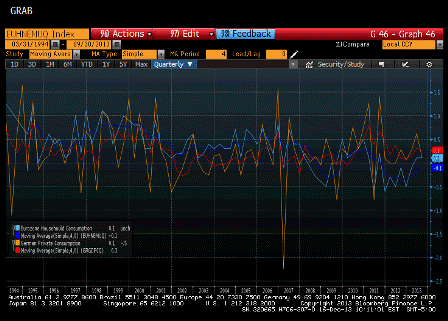Do you think they know austerity causes loans to go bad?
Troubled loans at Europe’s banks double in value (FT) European banks’ non-performing loans have doubled in just four years to reach close to €1.2tn and are expected to keep rising. A report by PwC found that non-performing loans (NPLs) rose from €514bn in 2008 to €1.187tn in 2012, with rises in the most recent year driven by deteriorating conditions in Spain, Ireland, Italy and Greece. It predicted further rises in the years ahead because of the “uncertain economic climate”. Richard Thompson, a partner at PwC, said the “reshaping” of European bank balance sheets had several more years to run as lenders shed troubled and unwanted loans and attempted to strengthen their balance sheets. He estimates European banks are sitting on €2.4tn of non-core loans that they plan to wind down or sell off. The first eight months of 2013 have seen €46bn of European loan portfolio transactions, equal to the entire amount recorded in 2012.
Do you think they know higher rates support higher inflation and weaken the currency?
India’s Central Bank Expects Inflation to Remain Stubborn (WSJ) The Reserve Bank of India Monday sounded concern about inflation, which it said would remain outside its comfort zone this fiscal year. In its half-yearly review of macroeconomic and monetary developments, released a day before its monetary-policy meeting, the RBI also highlighted the need to boost economic growth. But its stress was more on inflation. Inflation at the wholesale level—the main measure of prices in India—notched a seven-month high of 6.46% in September. It has remained above the central bank’s comfort level of 5% for four consecutive months through September. The RBI said it expects both consumer and wholesale inflation to remain around their current levels. “This indicates persistence of inflation at levels distinctly above what was indicated by the Reserve Bank earlier in the year,” it said.

